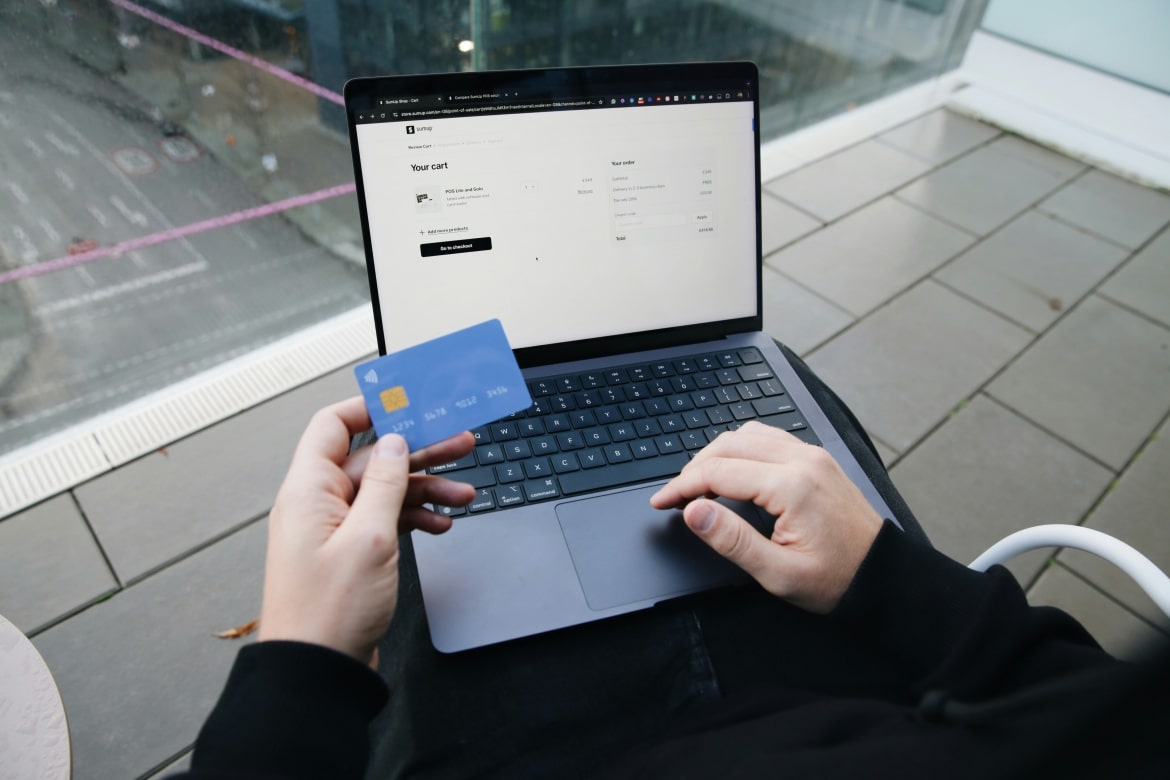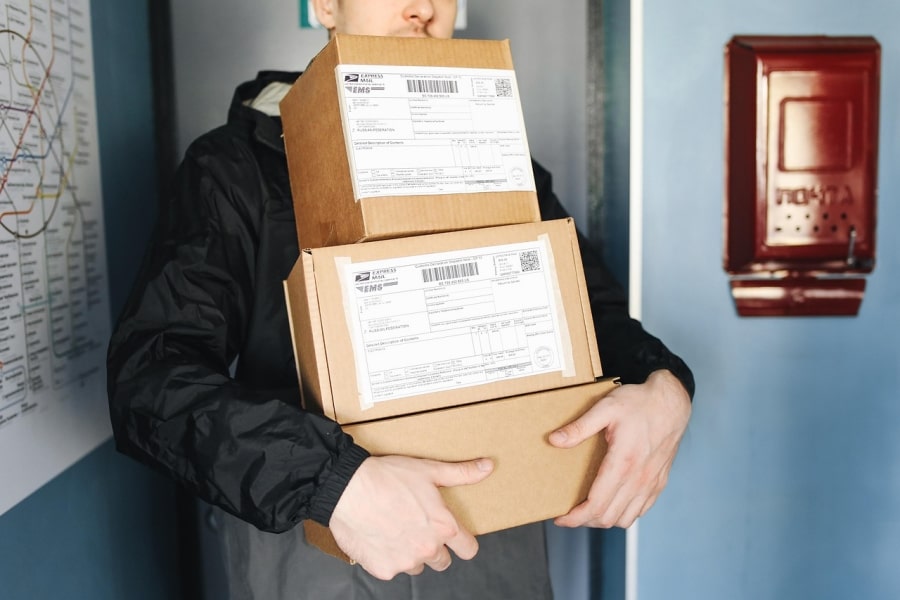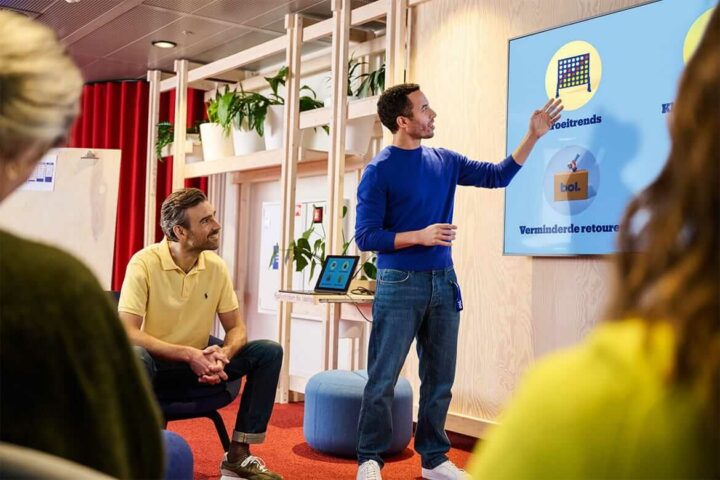Online retail in Germany 2025: What shoppers expect from delivery and returns
Written by
Editorial TeamPublished on
YouGov’s Online Retail 2025 study shows what German consumers expect: fast delivery, free shipping, simple returns, and growing focus on sustainability.

Online retail in Germany has entered a new phase where speed, predictability, and simplicity aren’t differentiators – they’re the baseline. Drawing exclusively on the YouGov Online Retail 2025 study, this article distills what 1,000 German consumers say they really want when they click “buy”, while comparative data from 16 additional markets helps put Germany’s expectations into global context.
(Image source: www.unsplash.com)
As the analysis show, for German online shoppers, speed remains a must-have. Fully 66% say fast delivery is important when deciding where to shop online. The emphasis is even stronger among younger consumers: 71% of Gen Z and Millennials rate delivery speed as important, compared with 63% among older generations. Said differently, speed has shifted from a differentiator to table stakes.
Yet Germany’s well-known price focus shows up immediately: only 42% are willing to pay extra for express or same-day service (rising to 54% for Gen Z and Millennials). Retailers must therefore deliver efficient logistics without price shock. Transparency is a key lever here: 72% expect precise delivery time information at checkout, and vague promises contribute to abandoned carts. In the study’s words and numbers, speed is mandatory—not a premium.
Free shipping: The most powerful conversion driver
If speed is the baseline, free shipping is the deal-maker. 79% of German shoppers pay special attention to free shipping offers, treating them as standard rather than perk. The psychology is straightforward: free shipping signals fairness and customer focus, while even small fees feel like friction.
The behavior that follows is striking: 65% say they add extra items to reach the minimum order value for free shipping (and 73% of Gen Z do the same). In other words, free shipping doesn’t just close sales—it increases basket size. Internationally, Germany’s 79% sits just behind the US (82%) and Canada (80%), underscoring how deeply the expectation is entrenched in mature e-commerce markets. Many retailers are responding with threshold models or membership programs that put free shipping to work as a dependable conversion engine and brand builder.
Returns: Simplicity beats sustainability (for now)
When it comes to returns, German consumers prize ease and speed of resolution above everything else. 68% place high value on easy, free returns, reflecting a “try before you buy” mindset that’s particularly common among younger shoppers. Expectations are concrete: clear instructions, labels included, and quick refunds. Retailers that deliver on these points lift repeat-purchase rates and earn outsized goodwill.
Sustainability, while valued, is secondary during returns: only about one-third of respondents actively consider eco-criteria like CO₂-neutral returns or reusable packaging. The nuance matters: when sustainability can be achieved without sacrificing convenience, consumers respond positively—think consolidated returns or parcel-shop drop-offs. Returns, in short, are no longer a necessary evil; they’re a loyalty mechanism that can reduce switching. According to the study, the likelihood of switching after a positive return experience can drop by up to 30%.
Carriers and trust: The delivery partner shapes the brand
Carriers are not an invisible layer – they shape the store’s brand perception. 37% of German shoppers say they have a preferred shipping provider – most often DHL, followed by Hermes, DPD, GLS, and UPS. Reliability directly drives loyalty: 64% would buy from a retailer again after a reliable delivery; 58% say they switch after a negative experience.
Communication sits at the center of that reliability. Echoing the checkout expectation, 72% want precise delivery status and timing; 69% expect retailers to proactively inform about delays, even if the problem originates with the logistics partner. Younger shoppers in particular want real-time tracking, app notifications, and flexible options. Notably, the study reports that retailers who implement automatic shipping updates reduce customer support requests by up to 35% – a hard operational payoff for better comms.
There’s a sustainability edge here, too: 35% prefer carbon-neutral deliveries – if pricing stays the same. Carriers are responding with EV fleets, cargo bikes, and greener packaging, but the message is consistent: don’t make shoppers trade off convenience to go green.

Transparency: From nice-to-have to non-negotiable
In modern German e-commerce, transparency is an obligation. At checkout, 72% expect clear delivery dates; 58% say lack of transparency causes them to abandon a purchase. The post-checkout experience follows suit: 77% of Gen Z and Millennials expect detailed delivery information, 69% say they shop more often with retailers who proactively update shipping status, and a meaningful share want push notifications, live tracking maps, and personalized status pages.
The bar is high internationally, and Germany sits near the top: in Scandinavia, 75% expect full transparency; Germany follows at 72%. In Asia (61%) and Latin America (57%), transparency matters too, though price and availability often dominate. For German retailers, the takeaway is simple: transparent shipping communication isn’t a bonus—it’s a competitive moat.
Sustainability: Rising priority, constrained by cost and convenience
Sustainability is growing in relevance, but behavior trails sentiment. In Germany, 33% actively consider sustainable shipping or packaging. That’s slightly above the European average (~30%), behind Scandinavia (up to 45%), and ahead of the US (27%) and India (25%).
The constraint is cost and time: 67% support sustainable solutions, but are not willing to accept higher prices or longer delivery; only 14% are willing to pay for climate-neutral delivery. Still, there’s a clear path forward if retailers remove trade-offs: 48% want sustainable options at no extra charge, 41% support reusable packaging, 37% support combined deliveries, and 56% want clear sustainability labels at checkout. Practically, the winning formula is greener by default, without added hassle.
Germany in global context: Between speed and price
The international view from 17 markets sharpens Germany’s profile as rational and price-conscious:
- Paying for speed: US 55% and UK 52% would pay for express/same-day; Germany sits at 42%. In Scandinavia (Denmark 47%, Sweden 49%), consumers often accept slower, greener delivery.
- Free shipping: US 85%, Germany 79%, France 74%, Italy 71%. In India (63%) and Mexico (61%), free shipping is more often a bonus than a baseline.
- Returns: 68% of Germans expect easy returns vs. ~55% in Southern Europe and ~45% in Asia—evidence that returns are part of brand evaluation in Germany.
- Carrier loyalty: Germany leads with 37% having a preferred provider, ahead of France (28%) and the UK (31%).
- Transparency: Scandinavia 75%, Germany 72%, Asia 61%, Latin America 57%.
- Sustainability attention: Germany 33%; Sweden 45%, Denmark 42% ahead; US and Southern Europe ~25%.
The pattern is consistent: German shoppers expect speed and transparency as standard, value free shipping highly, and reward reliable carriers – all while scrutinizing price.
Post-purchase as strategy: Why delivery and returns decide loyalty
Across the funnel, the study elevates delivery and returns from operations to brand strategy. 64% say they will buy again if delivery and returns are seamless – a stronger predictor of loyalty than price or even assortment in many cases. The mechanics of winning are clear:
- Speed: Fast delivery is expected (66% overall; 71% among younger shoppers).
- Clarity: At checkout and beyond, precise ETAs and proactive updates reduce churn and support load (up to 35% fewer tickets with automated updates).
- Convenience: Free shipping (79%) and easy returns (68%) drive both conversion and lifetime value.
- Choice: 58% want multiple shipping options, ensuring fit with lifestyle and scheduling.
- Sustainability without sacrifice: Interest is real (33%), adoption grows when it doesn’t cost extra or slow orders.
The tech stack behind this is evolving fast: real-time data, AI-supported logistics, predictive shipping, and multi-carrier orchestration turn promises into performance. The line between retailer and logistics provider continues to blur as both sides collaborate to deliver a single, consistent customer experience.
What retailers should do now
The YouGov Online Retail 2025 study makes one thing unmistakably clear: in Germany, the post purchase experience is where customer relationships are won or lost. To meet these evolving expectations, retailers must think strategically about every step between checkout and delivery.
First, predictability must take precedence over pure speed. Shoppers want delivery estimates they can rely on — and they expect brands to communicate proactively when something changes. A missed delivery window isn’t just a logistical hiccup; it’s a moment that can strengthen or weaken trust depending on how it’s handled. Retailers should treat every deviation from schedule as an opportunity to demonstrate transparency and responsiveness.
Second, free shipping remains the strongest conversion lever in German e-commerce. Rather than eliminating fees across the board, smart retailers are building models that make free shipping financially sustainable. This includes setting transparent order thresholds, introducing loyalty memberships, or bundling products in ways that naturally lift the average basket size. In a market where consumers equate free delivery with fairness, these structures protect both customer satisfaction and margins.
Returns, too, are a strategic touchpoint. Retailers that streamline the process — offering clear steps, pre-printed labels, instant authorizations, and fast refunds — transform what was once a cost center into a loyalty engine. The smoother and more predictable the return experience, the more likely customers are to repurchase. Treating return management as part of the overall customer journey, not merely as after-sales administration, turns convenience into a differentiator.
Transparency is no longer optional. Real-time tracking, proactive delay notifications, and branded tracking pages should be considered baseline features rather than extras. Each communication reinforces reliability and reduces support inquiries, allowing service teams to focus on value-adding interactions rather than troubleshooting.
Sustainability continues to grow in importance, but German consumers have made it clear: it must not come at the expense of convenience. Retailers that default to greener options — such as reusable packaging, consolidated shipments, or carbon-neutral delivery at no extra charge — can meet rising expectations without adding friction. Clearly labeling these options at checkout signals responsibility and builds credibility.
Finally, shipping providers are not just vendors; they are brand partners. A reliable delivery service directly influences how customers perceive the retailer itself. Choosing carriers for service quality and communication reliability — not just for price — ensures the delivery experience aligns with brand values. In essence, the carrier’s customer experience becomes the retailer’s customer experience.
The bottom line
The findings of the YouGov Online Retail 2025 study reveal a decisive truth about the German market: consumers now reward fast, reliable, and clearly communicated delivery, free and fair shipping, and effortless return processes with their loyalty. Sustainability is gaining traction but only succeeds when integrated seamlessly into convenience.
The future of online retail will be shaped not by the moment of purchase but by everything that follows. The most successful brands will be those that master the post-purchase experience — blending logistics, transparency, and trust into one coherent customer promise. When executed consistently, delivery and returns aren’t just operational necessities; they become a sustainable competitive advantage and a driver of long-term growth.
***


